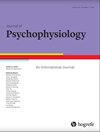非中枢神经系统癌症幸存者的神经认知障碍
IF 0.9
4区 心理学
Q4 NEUROSCIENCES
引用次数: 0
摘要
摘要:癌症及其治疗涉及中枢神经系统(CNS)的深刻炎症反应。这种强烈的神经毒性过程甚至可以导致非中枢神经系统癌症的显著神经认知障碍。很少有研究检查这一领域,现有的数据是基于有限的设计,使用神经心理学评估,包括自我报告或捕捉基本反应数据的传统测试电池。在这里,我们利用认知电生理学,特别是事件相关电位(ERPs),来检查和描述非中枢神经系统癌症幸存者的神经认知损伤。11名头颈癌平均缓解4.6年的幸存者和10名匹配的健康对照者接受了标准化的认知和情感“Go-Nogo”范式,并伴有脑电图记录。在非中枢神经系统癌症幸存者和对照组之间,非常早期ERP分量(C1, N1, P1)和中期ERP分量(N2)的振幅形态存在显著差异。后期ERP各分量(P3、N4)无幅值差异。在情绪模式中,非中枢神经系统癌症幸存者在疼痛相关刺激的早期成分中产生更快的潜伏期,尽管在两个实验中总体上倾向于产生更慢的ERP潜伏期。这些发现表明,非中枢神经系统癌症幸存者的早期门控和抑制控制失调,这可能会影响治疗后多年参与日常活动的执行功能和认知加工。这些发现并不完全符合与退行性疾病(如痴呆和阿尔茨海默病)中神经认知障碍相关的ERP形态,影响后期ERP成分。我们的初步结果表明:(1)癌症幸存者的认知障碍不遵循退行性轨迹,(2)相反,与“病变”相关的损伤(如中风、癫痫)一致,因此,(3)具有涉及神经认知可塑性的治疗潜力。本文章由计算机程序翻译,如有差异,请以英文原文为准。
Neurocognitive Impairment in Non-Central Nervous System Cancer Survivors
Abstract: Cancer and its treatments entail a profound inflammatory response of the central nervous system (CNS). This intense neurotoxic process can lead to significant neurocognitive impairment even in non-CNS cancers. Few studies have examined this domain, and data available is based on limited designs using neuropsychological assessments comprising self-report or traditional testing batteries that capture basic response data. Here, we leverage cognitive electrophysiology, specifically Event-Related Potentials (ERPs), to examine and delineate neurocognitive impairments in non-CNS cancer survivors. Eleven survivors, who were on average 4.6 years in remission from head and neck cancer and 10 matched healthy controls underwent standardized cognitive and emotional “Go-Nogo” paradigms concomitant to EEG recording. Significant differences in amplitude morphology in the very early ERP components (C1, N1, P1) and middle ERP component (N2), were apparent between non-CNS cancer survivors and controls. Later ERP components (P3, N4) did not show amplitude differences. Non-CNS cancer survivors yielded faster latencies in the early components for pain-related stimuli during the emotional paradigm, albeit tended to yield slower ERP latencies overall across both experiments. These findings suggest that early gating and inhibitory control are dysregulated in non-CNS cancer survivors, which can impact executive functioning and cognitive processing involved in everyday activities for many years post-treatment. The findings do not fully align with ERP morphologies associated with neurocognitive impairment in degenerative conditions (such as dementia and Alzheimer’s disease), affecting later-stage ERP components. Our initial results suggest that (1) cognitive impairments in cancer survivors do not follow a degenerative trajectory, (2) rather are in line with “lesion” related damage (such as stroke, epilepsy), and as such, (3) have the potential for treatments involving neurocognitive plasticity.
求助全文
通过发布文献求助,成功后即可免费获取论文全文。
去求助
来源期刊

Journal of Psychophysiology
医学-神经科学
CiteScore
2.60
自引率
7.70%
发文量
25
审稿时长
>12 weeks
期刊介绍:
The Journal of Psychophysiology is an international periodical that presents original research in all fields employing psychophysiological measures on human subjects. Contributions are published from psychology, physiology, clinical psychology, psychiatry, neurosciences, and pharmacology. Communications on new psychophysiological methods are presented as well. Space is also allocated for letters to the editor and book reviews. Occasional special issues are devoted to important current issues in psychophysiology.
 求助内容:
求助内容: 应助结果提醒方式:
应助结果提醒方式:


